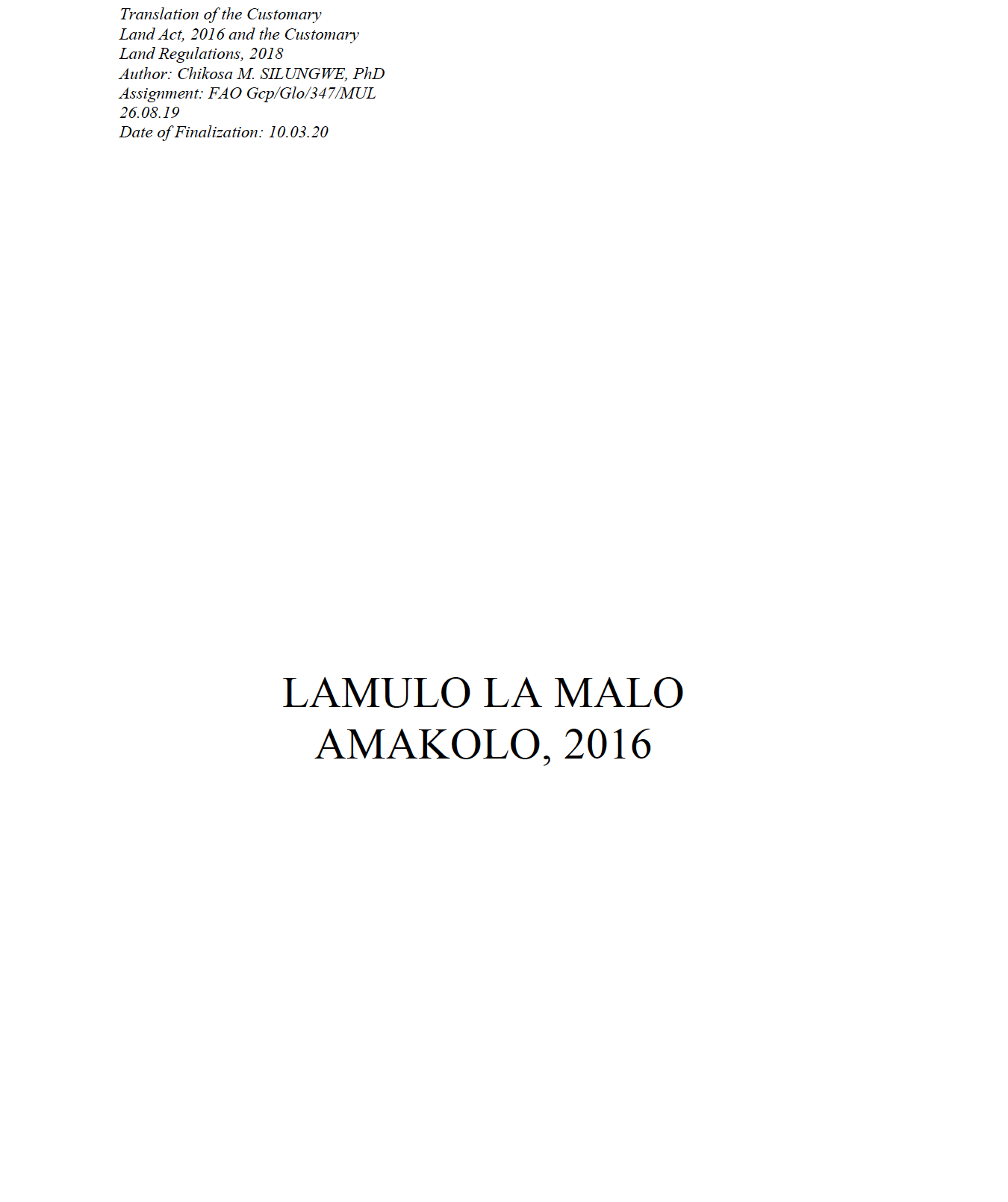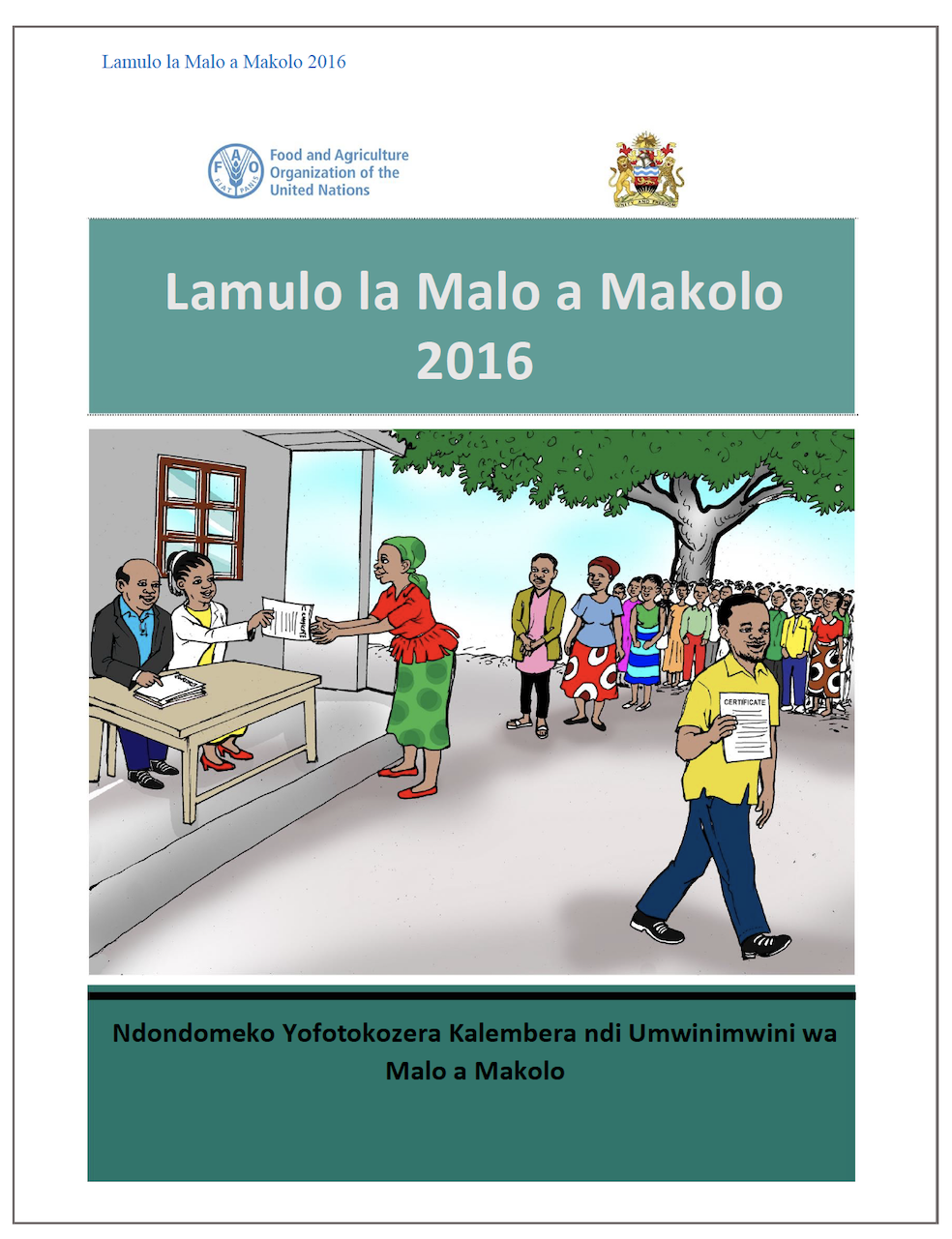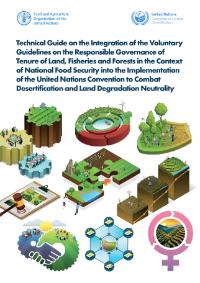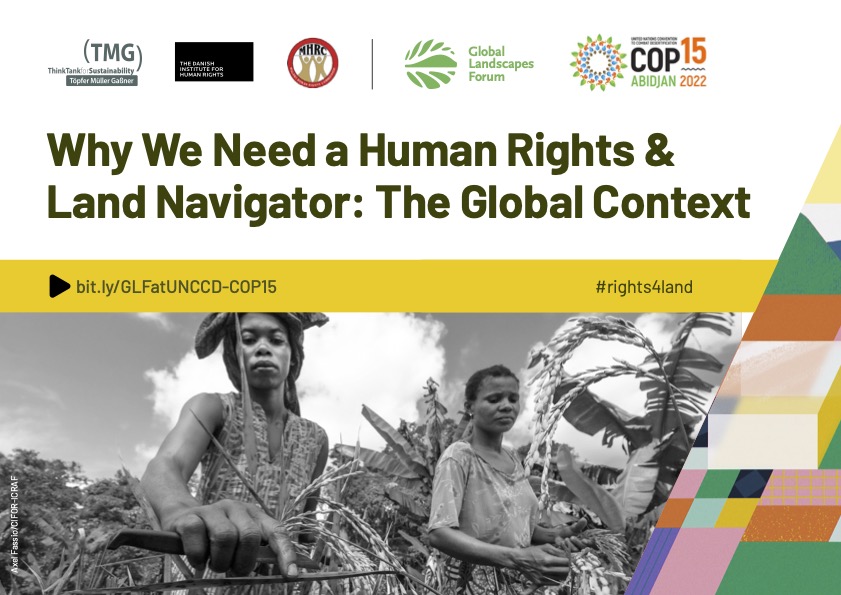Lamulo la Malo a Makolo 2016
Msonkhano Wodziwitsa Atsogoleri a ma Dipatimenti ndi Mabungwe a pa Boma
Mamembala a nthambi yoyendetsa chitukuko pa Boma ayenera kudziwa za lamulo la malo a makolo koyambirira kuti asankhe dera lomwe angakayambire ntchito zokhudza lamuloli.
Msonkhano Wodziwitsa Makomiti a ADC, VDC ndi Magulu a m’madera za Lamulo la Malo a Makolo
Makomiti a ADC ndi VDC ndi ofunika kwambiri pothandiza anthu a m’madera mwawo kumvetsetsa za lamulo la malo a makolo.
Chisankho cha Komiti Yoyendetsa za Malo a Makolo
Shades of Land
The Support to Responsible Agricultural Investments (S2RAI) Project promotes internationally recognized principles and guidelines to ensure food and land tenure security for communities in the context of large-scale commercial land investment as well as strengthen the institutional frameworks and coordination structures at federal and regional levels in relations to responsible agricultural investment in Ethiopia.
Reflections on the limited impact of the VGGT in Sub-Saharan Africa and opportunities for its future with lessons from Nigeria and Sierra Leone
The reality that significant improvements in security of tenure at scale in rural Africa are still needed nearly a decade after the adoption of the Voluntary Guidelines for the Responsible Governance of Tenure of Land;Fisheries and Forests (VGGT) suggests a need to explore its limitations and consider what it would take to realize its objectives. The article documents significant impacts of the VGGT reform processes and highlights illustrative or “one-off” results.
Technical Guide on the Integration of the Voluntary Guidelines on the Responsible Governance of Tenure of Land, Fisheries and Forests in the Context of National Food Security into the Implementation of the United Nations Convention to Combat Desertificati
Produced jointly by the secretariats of the Food and Agriculture Organization of the United Nations (FAO) and the United Nations Convention to Combat Desertification (UNCCD), with contributions from multiple stakeholders, this technical guide addresses the integration of the Voluntary Guidelines on the Responsible Governance of Tenure of Land, Fisheries, and Forests in the Context of National Food Security (VGGT) within the implementation of the UNCCD and Land Degradation Neutrality (LDN), thus opening a new chapter in ongoing efforts to combat desertification, land degradation, and drought
The Global Symposium on Soil Erosion (GSER19)
The Global Symposium on Soil Erosion (GSER19) represented a critical step towards the implementation of the Voluntary Guidelines for Sustainable Soil Management (VGSSM) in terms of minimizing the risk of soil erosion. GSER 19 identified effective and ineffective Sustainable Soil Management (SSM) practices, techniques, instruments and mechanisms which shed light on where the gaps and challenges are in terms of science, technology and legislation.
Land tenure legislation and soil security concerns in Cameroon
This chapter explores the interface between land tenure rights and soil security and screens through the Cameroonian land tenure legislation in order to identify relevant provisions that guarantee soil security.
Tenure Rights for Restoration and Land Degradation Neutrality
TMG Research is working with the governments of Benin, Kenya, Madagascar, and Malawi to advance the implementation of the UNCCD Land Tenure Decision 26/
COP.14. The partnership involves analyses of the impact of activities to achieve Land Degradation Neutrality (LDN) on legitimate land tenure rights and to devise ways to secure legitimate tenure rights and achieve LDN. It benefits from support by the German Federal Ministry for Economic Development and Cooperation and GIZ.
Respecter le consentement préalable, donné librement et en connaissance de cause au Sénégal
Respecter le consentement préalable, donné librement et en connaissance de cause est un droit collectif qui appartient à tout membre d’une communauté. Cela signifie que les communautés ont le droit de prendre des décisions par leurs propres représentants librement choisis et leurs institutions, coutumières ou autres, telles que les autorités locales et les élus locaux. Ce guide d'accompagnement doit être utilisé pour des formations en consentement libre, préalable et en connaissance de cause.
Respecter le consentement préalable, donné librement et en connaissance de cause au Mali
Ce guide est le fruit d’une formation portant sur le consentement préalable, donné librement et en connaissance de cause (CPLCC) et le partage d’autres outils développés au niveau local qui s’est tenue les 2 et 3 mai 2018 à Kayes au Mali*. Cette formation a réuni une cinquantaine de participants, venant des organisations paysannes, des groupements de femmes et de jeunes, des élus locaux, des ONG et des services techniques régionaux. Elle a permis à ces différents acteurs d’analyser le processus du CPLCC dans le contexte local pour renforcer la gouvernance foncière au Mali.
Respecter le consentement préalable, donné librement et en connaissance de cause en Mauritanie
Ce guide est le produit d’une formation qui s’est tenue à Boghé en Mauritanie, du 24 au 25 avril 2018 sur le CPLCC et sur le partage des outils développés par des partenaires locaux pour améliorer la gouvernance foncière locale du pays. Environ 50 participants ont assisté à la formation, notamment des représentants du gouvernement et des autorités locales, des organisations de producteurs et des coopératives de femmes.
Respecter le consentement préalable, donné librement et en connaissance de cause en Tunisie
Ce guide est le fruit d’une série de sessions de renforcement des capacités sur le Consentement Préalable, donné librement et en connaissance de cause (CPLCC) organisé par la FAO et l’Agence Foncière Agricole (AFA) entre mai et novembre 2018*.










